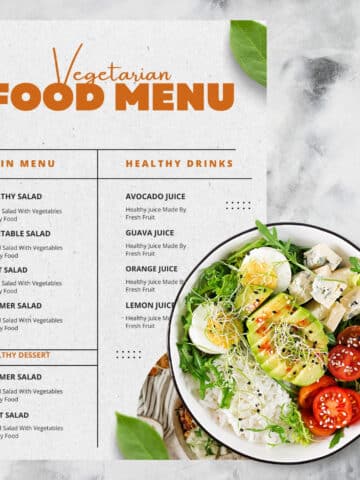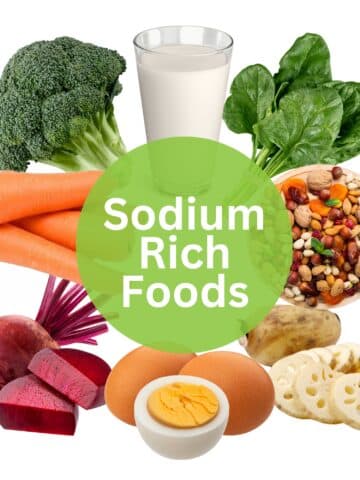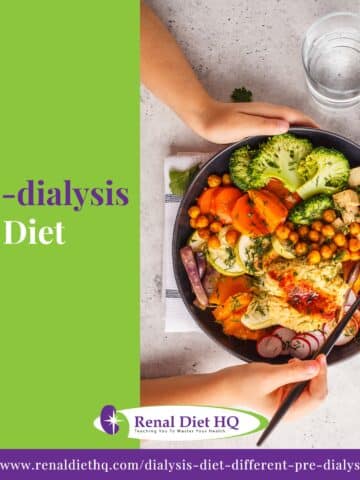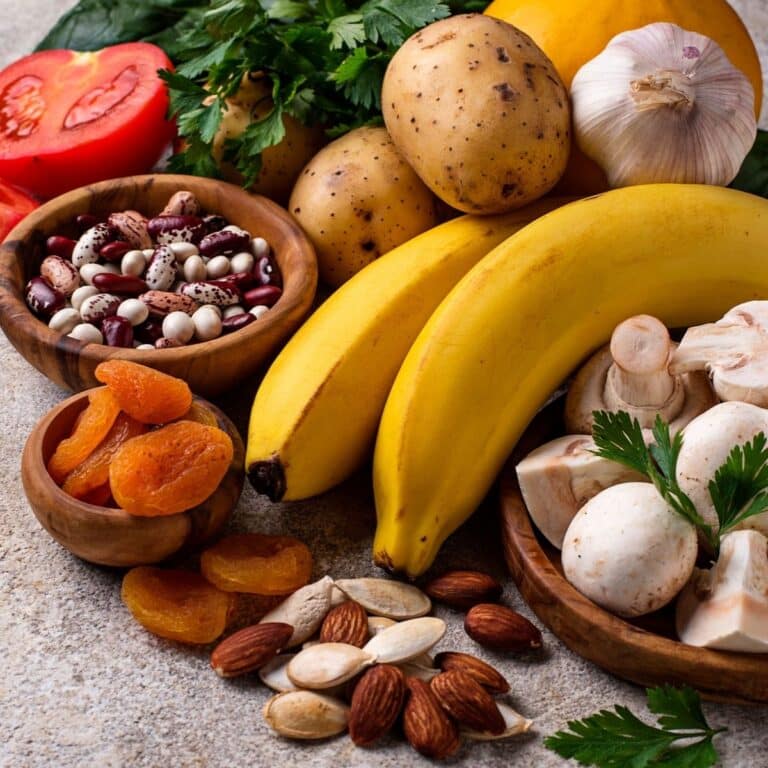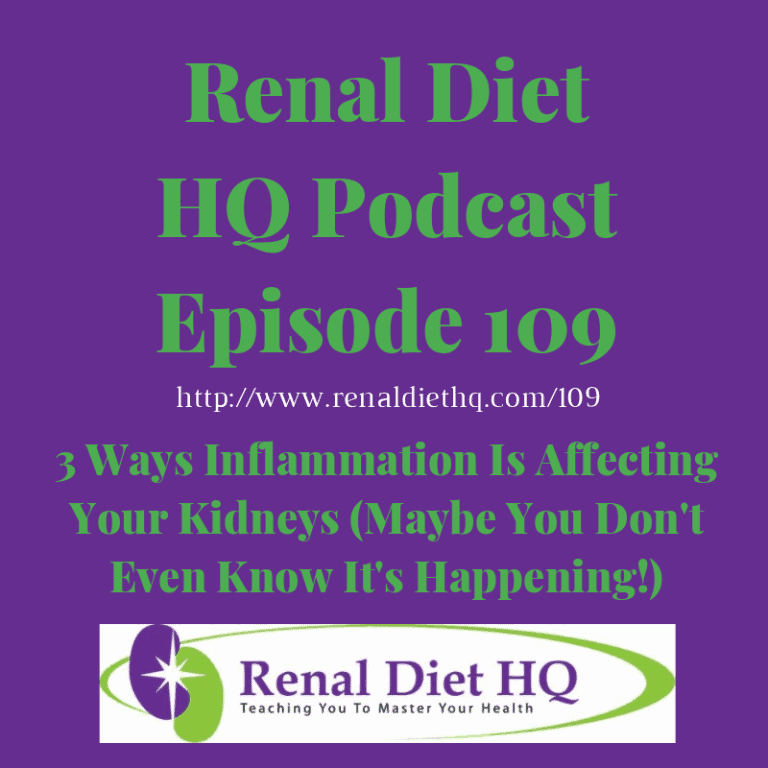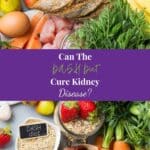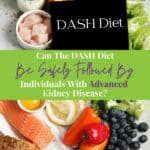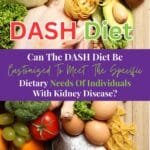Dash Diet for Kidney Disease
Are you or someone you know living with kidney disease? If so, it's important to understand the role that diet plays in managing this condition.
One popular dietary approach is the DASH (Dietary Approaches to Stop Hypertension) diet, which has been shown to have numerous health benefits, including improved blood pressure and cholesterol levels.
The DASH diet emphasizes a balanced and nutrient-rich eating pattern that emphasizes whole grains, fruits, vegetables, lean proteins, and low-fat dairy. This approach is not only beneficial for managing hypertension but also for promoting overall health and wellness.
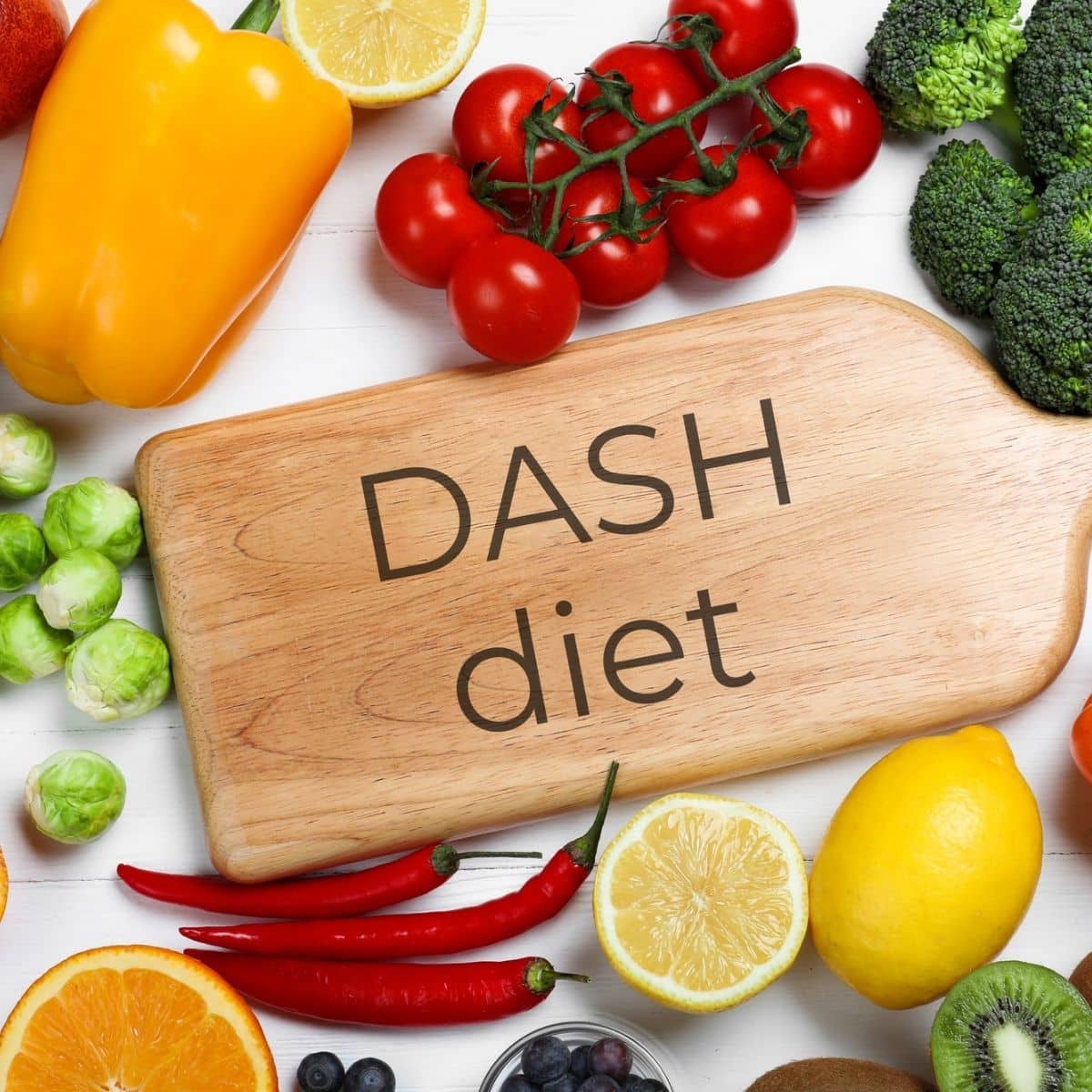
In this article, we will explore the principles of the DASH diet and how it can be adapted for those with kidney disease. We will also discuss specific considerations related to potassium and phosphorus intake as well as research on the effectiveness of this dietary approach in managing chronic kidney disease. If you need cereals low in potassium and phosphorus, then this list will help!
Jump to:
- Key Takeaways
- Overview of DASH
- Principles of DASH
- Recommended Foods
- Foods to Avoid
- Example Meal Plan
- Benefits for Hypertension
- Benefits for Diabetes
- Considerations for CKD
- Potassium and Phosphorus Intake
- Research and Future Directions
- FAQs for the Dash Diet
- The DASH Diet Can Be Suitable For Kidney Disease Patients
Key Takeaways
- The DASH diet is an effective dietary approach for managing kidney disease.
- The four principles of the DASH diet are effectiveness, sustainability, flexibility, and customization.
- Recommended foods on the DASH diet include lean meats, plant-based proteins, low-sodium options, fresh or frozen fruits, a variety of vegetables, and water.
- Balancing electrolytes and monitoring levels through regular lab tests and nutrition counseling from a dietitian are crucial for managing chronic kidney disease.
For More Recipes and Ideas --->> Get Your Free Meals and Recipes That Are Perfect for Pre-Dialysis Diets, Pre-Dialysis with Diabetes, or Dialysis Diets.
Overview of DASH
If you're looking for a kidney-friendly diet that's easy to follow, the DASH diet might be just what you need! The Dietary Approaches to Stop Hypertension, or DASH guidelines, were developed by the National Heart, Lung, and Blood Institute to help people reduce their blood pressure and improve their heart health.
The DASH diet is a recognized treatment for hypertension, heart disease (ckd and heart disease), and kidney disease and can also slow down the progression of heart disease and kidney disease. However, If you already have chronic kidney disease, then you must speak with your doctor and dietitian before trying out any new diets as you might have special dietary restrictions to consider. The DASH diet should also not be used by people on dialysis.
The DASH diet emphasizes whole foods like fruits, vegetables, whole grains, lean proteins, and low-fat dairy products. One of the key aspects of the DASH diet is sodium reduction. Many people with kidney disease are advised to limit their sodium intake because it can cause fluid build up around the heart and the lungs and raise blood pressure.
The DASH diet typically recommends limiting sodium intake to 2,300 milligrams per day or less. However, for people with chronic kidney disease (CKD) , this may need to be further lowered to 1,500 milligrams per day. This can be achieved by avoiding processed foods that are high in sodium and seasoning meals with herbs and spices instead of salt.
In addition to improving heart health and reducing blood pressure, following the DASH guidelines may also lead to weight loss and improved cholesterol management. By focusing on whole foods that are rich in nutrients but low in calories, individuals may naturally consume fewer calories without feeling deprived.
This can lead to gradual weight loss over time, which can further benefit overall health outcomes, including better control of diabetes and improved kidney function.
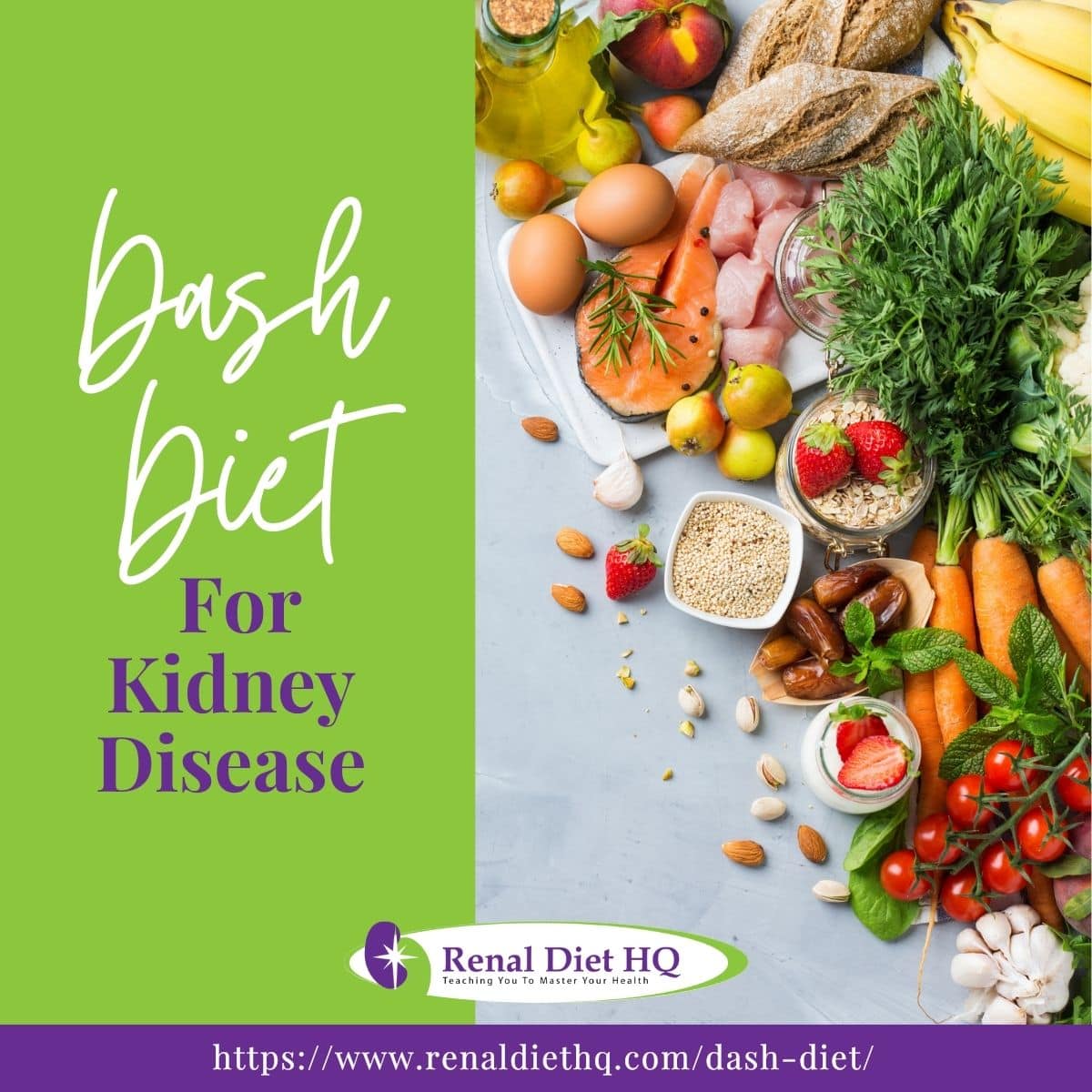
Principles of DASH
By adopting the principles of the DASH diet, you'll be able to reduce your risk of developing health complications and improve overall wellness. The DASH diet is effective in helping individuals maintain healthy blood pressure levels, lower cholesterol levels, and prevent heart disease. Its sustainability comes from its flexibility and simplicity, making it easy for people to stick to long-term.
The following are four principles that make up the foundation of the DASH diet while keeping in mind the dietary restrictions (renal restricted diet) that kidney patients are generally required to follow:
- Prioritize the consumption of specific fruits and vegetables: While the DASH diet generally encourages a high intake of fruits and vegetables, kidney patients need to be more selective due to potassium and phosphorus levels in certain produce. Opt for lower-potassium choices like apples, berries, and green beans, and lower-phosphorus options like fresh cucumber, peppers, and onions. These foods still provide essential vitamins, minerals, and fiber, but without overloading your body with excess phosphorus.
- Choose whole grains carefully: Whole grains are a key part of the DASH diet due to their high fiber content, which can help regulate blood cholesterol. However, for kidney patients, it's important to note that whole grains also contain more phosphorus and potassium than refined grains. Therefore, portion control is crucial. Opt for whole grain foods that are lower in these minerals, such as bulgur, buckwheat, and barley.
- Include low-fat or non-fat dairy products in moderation: Dairy products are a good source of calcium and vitamin D, but they also contain high levels of phosphorus which can be harmful to those with kidney disease. Therefore, it's important to consume these products in moderation. Consider alternatives like non-dairy milks (almond, rice, soy) which often have less phosphorus and potassium than traditional dairy.
- Incorporate lean proteins, but monitor portion sizes: Fish, poultry, and legumes are good sources of lean protein, which is important for maintaining muscle mass and overall health. However, protein metabolism can produce waste that your kidneys need to filter, so it's important not to overconsume protein. Your healthcare provider or dietitian can help determine the right amount of protein for your individual needs.
To give you a clearer picture of how to portion your DASH diet, take a look at this table below:
| Dietary Component | Recommended Intake |
| Fruits | 4-5 servings/day |
| Vegetables | 4-5 servings/day |
| Whole Grains | 6-8 servings/day |
| Low-fat dairy products | 2-3 servings/day |
| Lean proteins (fish/poultry) | <6 oz./day |
| Nuts/seeds/legumes | 4-5 servings/week |
Remember, these guidelines are general and may not be suitable for everyone with kidney disease. Always consult with a healthcare provider or dietitian for personalized advice.
By incorporating these principles into your daily routine, you can establish healthy habits that will benefit your overall well-being. Additionally, because the DASH diet is customizable and flexible, it can easily fit into any lifestyle or dietary preference while still providing significant health benefits.
Recommended Foods
To keep your meals interesting and flavorful while following the DASH principles, you'll be happy to know that there are a variety of recommended foods to choose from.
In addition to lean meats such as chicken, turkey, and fish, plant-based proteins like beans, lentils, and nuts also make great choices. These protein sources won't only provide you with the necessary nutrients but will also help keep you feeling full.
For low sodium options, it's important to read labels carefully and choose products with no or low added salt. Fresh herbs and spices can also be used in cooking instead of salt to add flavor without increasing salt intake.
When it comes to fruit choices, opt for fresh or frozen fruits instead of canned ones that may contain added sugars or syrups. Berries, apples, plums, grapes - all these make great snacks or additions to meals.
For vegetable options, aim for a variety of colors and textures on your plate. Choose a variety of vegetables in your meals, including leafy greens like lettuce and kale and brightly colored vegetables like peppers and carrots.
When choosing beverages, water is always the best option but if you're looking for something more flavorful, try apple juice, grape juice, or cranberry juice.
Overall, incorporating these recommended foods into your diet can help support your health while still providing delicious meals and snacks (kidney friendly snacks).
Foods to Avoid
When trying to make healthier choices for your kidney disease, it's important to be mindful of certain foods that may negatively impact your overall health. High sodium (following a low sodium kidney diet) is a major culprit that can cause hypertension and fluid retention, which can worsen kidney function. Therefore, it's best to avoid processed meats like bacon, sausage, and lunch meat that are often high in sodium.
Dairy products are also a concern when it comes to kidney disease management. While they're a great source of calcium and protein, many dairy products contain phosphorus which can build up in your blood if you have decreased kidney function. To prevent this from happening, limit or avoid high-phosphorus dairy products such as cheese and milk.
Canned foods are another food group that should be limited or avoided if possible due to their high sodium content. Many canned vegetables contain added salts which can lead to high blood pressure and heart problems. It's best to opt for fresh or frozen produce instead of canned varieties whenever possible to maintain a healthy diet for your kidneys (fresh or canned vegetables for a renal diet).
| Foods | Why You Should Avoid Them | Suggested Alternatives |
| Processed Meats | High in Sodium | Fresh lean meats like chicken or turkey |
| Dairy Products | High in Phosphorus | Non-dairy alternatives such as almond milk |
| Canned Foods | High in Sodium & Added Sugars | Fresh or frozen fruits & vegetables |
| Sugary Drinks | High in Added Sugars | Water or fresh fruit juices like apple or cranberry juices |
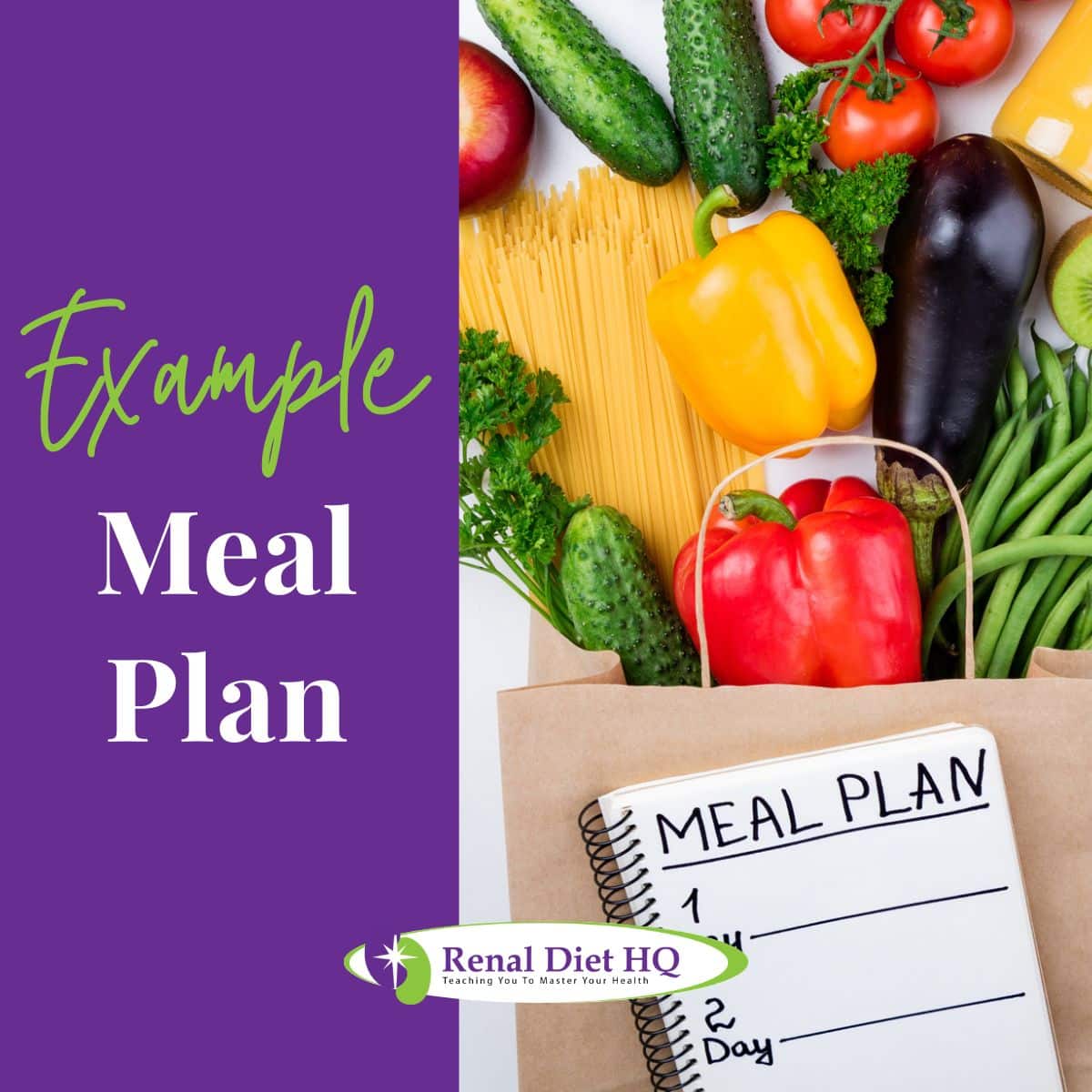
Example Meal Plan
Looking for easy and delicious meal ideas that are friendly to your kidneys? Check out this example meal plan!
The key to following the DASH diet for kidney disease is achieving a nutrient balance while restricting sodium intake. This means incorporating plenty of fruits, vegetables, whole grains, lean protein sources, and healthy fats while limiting high-sodium foods like processed meats, canned goods, and fast food (fast foods that are okay for kidney disease).
Here is an example of a day on the DASH diet:
Breakfast:
A bowl of oatmeal or bran cereal with a sliced up apple, banana, or peach. One cup of fat free milk.
Snack:
Baby carrots and a fat-free string cheese.
Lunch:
Sandwich wraps: Lean turkey or chicken deli slices with a slice of fat free cheese wrapped in lettuce. Pair with a handful of cherry tomatoes, and some grapes for a sweet finish.
Snack:
Raw broccoli florets or sugar snap peas with either avocado dressing or a yogurt-based ranch dressing substitute.
Dinner:
Grilled or baked chicken flavored with garlic and Italian herbs. Serve with quinoa and steamed broccoli, carrots, and cauliflower.
Additional Snack Option:
A small salad with fat-free Italian dressing and a handful of raw almonds.
Dessert Option:
Sugar free jell-o or a sweet bowl of cut up fresh fruits such as strawberries and melon
Meal prep tips can make following the DASH diet even easier. Try batch cooking quinoa or brown rice to use throughout the week as a base for meals or side dish options.
Cook chicken breasts in bulk to add to salads or wraps later on. Keep pre-cut veggies like carrots or bell peppers handy for easy snacking options throughout the day.
By planning ahead and preparing healthy kidney-friendly recipes in advance, you'll have more time during busy days without sacrificing your health goals!
Benefits for Hypertension
You'll be amazed at how much better you'll feel when you incorporate the DASH dietary plan into your lifestyle to help manage your hypertension. One of the most significant benefits of the DASH diet is its ability to lower blood pressure levels. By following this dietary pattern, you can reduce the need for medication and improve heart health.
Research has shown that individuals who follow the DASH diet have lower blood pressure readings than those who do not. The reduction in blood pressure occurs due to lifestyle changes, such as increasing fruit and vegetable intake, reducing sodium consumption, and consuming healthy fats found in fish and nuts. By making these simple dietary changes, you can significantly improve your heart health (heart healthy lifestyle changes for CKD).
Incorporating the DASH dietary plan into your life offers multiple benefits beyond just lowering blood pressure levels. It provides a roadmap for healthier eating habits that can improve overall cardiovascular health. With simple lifestyle changes like increased fruit and vegetable intake and reduced sodium consumption, you can decrease your reliance on medication while improving heart health naturally.
Benefits for Diabetes
If you have diabetes, incorporating the DASH dietary plan into your lifestyle can significantly improve your blood sugar control and overall health. The DASH diet emphasizes whole grains, fruits, vegetables, lean proteins, and low-fat dairy products while limiting sodium, saturated fats, sweets, and red meat (renal diet meat portion control).
Here are five ways in which following the DASH diet can benefit individuals with diabetes:
- Managing glucose: Eating meals that are high in fiber sources can help maintain steady blood glucose levels throughout the day.
- Reducing inflammation: The anti-inflammatory properties of many foods in the DASH diet may help reduce chronic inflammation associated with conditions like type 2 diabetes.
- Preventing complications: Diabetes is associated with a range of complications such as heart disease and kidney damage. Consuming a nutrient-rich diet like the DASH plan may reduce these risks.
- Improving metabolism: Studies have shown that following the DASH plan can improve cholesterol levels and aid weight loss - two factors critical to improving metabolic function in people with diabetes.
Incorporating any new dietary habit takes time and effort, but starting small changes gradually will make it easier to stick to healthy habits long-term. Consultation with a registered dietician or physician familiarized in nutrition management for patients with kidney disease would be an important step before making any significant changes in your eating habits.
Overall, though, adopting a DASH-style dietary pattern has been shown through research studies to be beneficial for controlling blood sugars if you have Type 2 Diabetes.
Considerations for CKD
Now that you know about the benefits of the DASH diet for diabetes, it's important to understand how this dietary approach can help individuals with CKD. If you've been diagnosed with this condition, it means your kidneys aren't functioning as they should and may require certain dietary modifications to manage symptoms effectively (can diet improve ckd symptoms).
The DASH diet can be a helpful tool in managing CKD by reducing protein intake, managing fluids, controlling sodium levels, and supplementing vitamins.
One crucial consideration for individuals with CKD is protein restriction. Your kidneys are responsible for filtering waste products from your blood; when they're not working correctly, excess protein intake can cause further damage to them.
The DASH diet recommends moderate protein intake from sources such as lean meats, fish, and plant-based proteins like legumes and nuts. By following these guidelines, you'll ensure that your body gets the necessary nutrients without putting unnecessary strain on your kidneys.
Fluid management may be an essential aspect of managing CKD successfully. As the kidneys lose their ability to filter fluid effectively from the body, you may experience swelling in different parts of your body or difficulty breathing due to fluid buildup in the lungs.
Following fluid restrictions prescribed by your healthcare provider while adhering to a low-sodium DASH diet can help manage these symptoms effectively.
Additionally, vitamin supplementation may be necessary since following a special diet for kidney disease might cause you to miss certain vitamins and minerals from foods. Some examples of vitamin supplements that you may have to take include B complex vitamins, vitamin C, and vitamin D.
By incorporating these simple lifestyle changes into your daily routine and consulting with your healthcare provider regularly, you can significantly improve outcomes for CKD.
Potassium and Phosphorus Intake
Managing your intake of potassium and phosphorus is crucial for individuals with chronic kidney problems. Balancing electrolytes, such as potassium and phosphorus, is important because the kidneys are responsible for filtering out excess levels in the body.
Therefore, when you have CKD, your kidneys may not be able to remove these minerals efficiently, leading to a build-up in the blood.
To manage your potassium and phosphorus levels, it is important to understand dietary restrictions and potential supplements that can help balance these electrolytes. Below is a table outlining some of the foods that are high in potassium and phosphorus and some alternative options that are lower in these minerals:
| High Potassium Foods | Lower Potassium Options |
| Bananas | Apples |
| Avocado | Cucumber |
| Spinach | Lettuce |
| High Phosphorus Foods | Lower Phosphorus Options |
| Dairy products (milk, cheese) | Rice milk or non-dairy alternatives |
| Chocolate candy, caramels | Pound cake, unsalted crackers, unsalted popcorn |
| Beef/chicken liver, organ meats, sardines | Fish, chicken, turkey |
It's important to note that monitoring your levels through regular lab tests and nutrition counseling from a dietitian can also be beneficial in managing CKD. With proper management of potassium and phosphorus intake, you can improve overall kidney function and potentially prevent further complications associated with CKD.
Research and Future Directions
Looking ahead, researchers are exploring new methods to improve electrolyte balance and prevent complications for individuals with chronic kidney issues. With the high prevalence rates of CKD worldwide, dietary modification has become an important aspect in managing this condition.
Lifestyle interventions such as exercise programs and stress reduction techniques have also been studied for their potential benefits in improving kidney function. Patient education is crucial in empowering individuals with CKD to make informed decisions about their health. This includes educating patients on how to read food labels, manage their medications, and maintain a healthy lifestyle.
Future directions for research include exploring the potential benefits of plant-based diets, which have been shown to improve overall health outcomes. Additionally, there is a need to investigate the impact of specific nutrients such as sodium and calcium on renal function.
The development of personalized nutrition plans may also be beneficial in improving patient adherence to dietary modifications.
Overall, continued research efforts are necessary to further understand the role of dietary modification and lifestyle interventions in managing CKD.
FAQs for the Dash Diet
The DASH diet is not a cure for kidney disease, but it can help manage the condition and slow its progression.
The DASH diet can help reduce the amount of waste and fluid the kidneys need to process, which can relieve some of the symptoms of kidney disease. It can also help control other health conditions that can worsen kidney disease, such as high blood pressure and diabetes.
However, it's important to note that dietary changes should be part of a comprehensive treatment plan for kidney disease, which may also include medication, dialysis, or other treatments as recommended by a healthcare provider.
Always consult with a healthcare provider or a dietitian before making significant changes to your diet, especially if you have a chronic health condition like kidney disease.
The DASH (Dietary Approaches to Stop Hypertension) diet is generally beneficial for kidney health, as it emphasizes eating fruits, vegetables, low-fat dairy, and lean proteins, while limiting sodium, sugar, and red meat. It is low in saturated and trans fats and high in calcium, potassium, magnesium, fiber, and protein.
However, for individuals with advanced kidney disease, the DASH diet may need to be modified. As previously mentioned, when kidney function is significantly impaired, the body may struggle to process certain nutrients, including potassium and phosphorus, which are present in many foods recommended by the DASH diet.
Therefore, individuals with advanced kidney disease or those on dialysis may need to limit their intake of potassium- and phosphorus-rich foods, which could require modifications to the standard DASH diet.
It's important for anyone with advanced kidney disease considering the DASH diet to consult with their healthcare provider or a dietitian to ensure the diet is tailored to their specific needs and restrictions.
If you're considering the DASH diet, it's important to be aware of potential concerns that may arise. One concern is that adherence to the DASH diet can lead to nutrient deficiencies if not properly balanced with nutrient-dense foods or supplements.
Following the DASH diet can increase your risk of gas and bloating due to the high fiber content of whole grains, fruits and vegetables. This can be avoided by adding one or two high fiber foods each week instead of adding them all at once.
Keeping these factors in mind will help ensure that you receive the full benefits of the DASH diet while minimizing any possible side effects or complications.
You can customize your diet to meet the specific dietary needs of individuals with kidney disease by making customized modifications. Depending on your individual situation, you may need to limit your intake of potassium and phosphorus.
Fluid management is also important for those with kidney disease. Fluid intake recommendations depend on your current stage of kidney disease. Working with a registered dietitian or healthcare provider can help you create a personalized plan that takes into account your stage of kidney disease, individual nutritional needs and other medical conditions.
By making these customized modifications to your diet, you can help manage symptoms of kidney disease and improve overall health outcomes.
If you're looking for dietary approaches to manage kidney disease, there are a variety of options available. Nutritional requirements and restrictions can vary depending on the individual's renal function, but one key goal is often blood pressure control.
Some diets may focus on limiting protein or sodium intake, while others may emphasize macronutrient ratios or specific nutrient targets. It's important to work with a healthcare provider or registered dietitian to determine the best approach for your unique needs.
While the DASH diet has been shown to have benefits for both blood pressure control and kidney health, it may not be suitable for everyone with kidney disease. Other diets that have shown promise in managing kidney disease include Mediterranean-style diets and plant-based diets.
Ultimately, choosing a diet that aligns with your nutritional requirements and dietary restrictions while also supporting your overall health goals is key in managing kidney disease effectively.
The DASH Diet Can Be Suitable For Kidney Disease Patients
The DASH diet can be beneficial for your kidney health and can potentially reduce your risk of complications associated with hypertension and diabetes. However, if you already have kidney disease, you should first consult your doctor to check if this diet is suitable for you.
Monitoring your potassium (low potassium diet) and phosphorus intake is crucial in ensuring that you're meeting your nutritional needs while preventing further damage to your kidneys.
As research continues to explore the potential benefits of the DASH diet for individuals with kidney disease, it's important to stay informed and up-to-date on new findings. By incorporating this evidence-based approach into your lifestyle, you can take control of your health and improve your quality of life.


